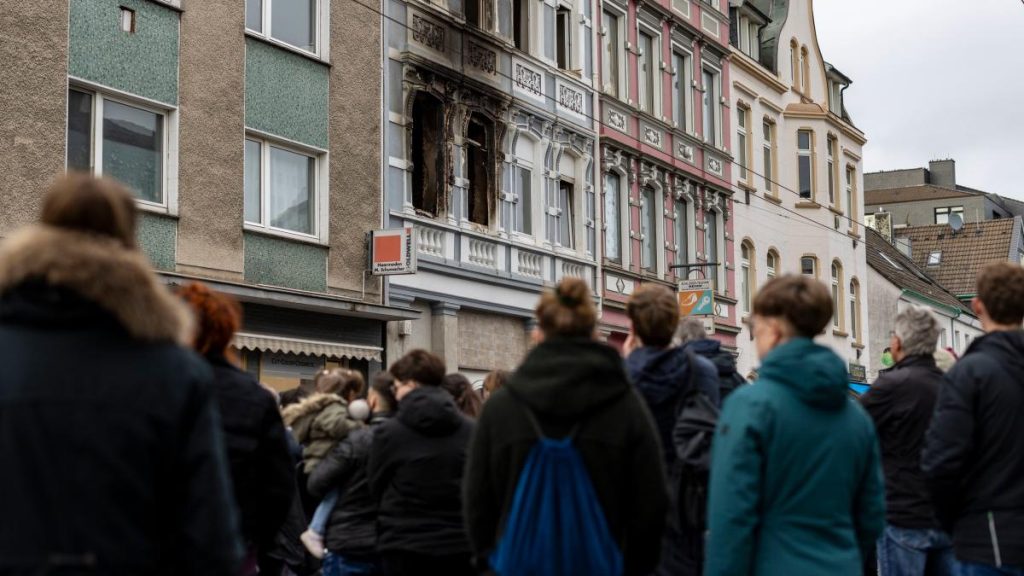Meliha and Emre, a young Turkish-German couple from Solingen, stand at Grünewalder Straße, looking at the burnt black rooms of the building where a tragic fire took place. They expressed their sadness, fear, and uncertainty, as they joined nearly 200 other people at a memorial gathering to show their sympathy and lay flowers at the scene. The fire, which resulted in the deaths of a Turkish-Bulgarian family, including two children aged three and five months, as well as injuries to eight others, was intentionally set, with evidence of accelerants found at the scene. The motive behind the crime is still under investigation, with authorities ruling out a xenophobic motive but suggesting a “personal” nature of the attack.
The tragic incident in Solingen on Tuesday night has sparked memories of a similar devastating event in the city in 1993, when a Turkish family fell victim to a racially motivated arson attack, leaving five individuals dead and many more injured. The Solingen community has long been associated with this dark chapter in its history, marked by xenophobic violence and hatred towards migrants in the early 1990s. The recent incident has raised concerns about a resurgence of anti-immigrant sentiments and attacks against minorities, prompting calls for vigilance and unity in the face of increasing right-wing rhetoric and discrimination. The community, including advocacy groups and individuals with firsthand experience of past atrocities, has come together to condemn the violence and demand justice for the victims.
In the wake of the fire, there has been speculation about a possible resurgence of far-right extremism in Germany, with some attendees at the memorial event drawing parallels to the political and social climate of the 1990s. Critics have raised concerns about the lack of acknowledgment of a potential hate crime by authorities, urging a thorough investigation into all possible motives behind the attack. The fear and insecurity felt by members of the community, especially those with migrant backgrounds, reflect deeper issues of integration and acceptance in German society, as highlighted by Meliha’s testimony about her own experiences of discrimination and identity struggles.
The Solingen community’s response to the tragedy has been marked by a mix of grief, solidarity, and resilience, with individuals from diverse backgrounds coming together to mourn the loss of innocent lives and demand accountability for the heinous act. Calls for unity, tolerance, and justice have resonated throughout the city, as residents grapple with the painful memories of past violence and strive to prevent history from repeating itself. The ongoing investigation into the fire and the motives behind it remains a key concern for authorities and community members alike, as they work towards understanding and addressing the root causes of such senseless acts of violence in society.















